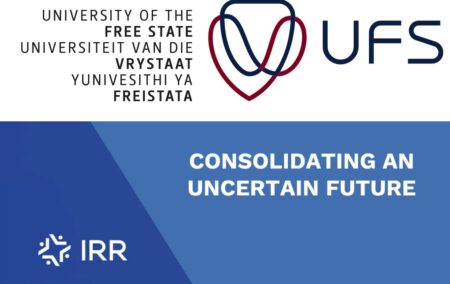A major change in the makeup of South Africa’s political landscape after last week’s election “poses challenges to stability that have never had to be faced before”.
This is among the key insights to emerge from an online panel discussion hosted jointly this week by the Institute of Race Relations and the Centre for Gender and Africa Studies at the University of Free State.
In a statement summing up some of the key themes, the IRR noted that a “deeply uncertain future awaits South Africa”, and that contributions to the panel discussion underlined the risk that the “scale of long-term socio-economic exclusion creates risks for the endurance of democracy, if not for the very functionality of the country”.
Prof Phillipe Burger, Dean of the Faculty of Economic and Management Sciences at UFS, pointed to the dire state of the economy, and the extent to which this was driving extremist choices, which stood to undermine further the country’s economic prospects.
General Eeben Barlow, CEO of Executive Outcomes and security consultant, emphasised the need for security organisations to be proactive in meeting threats to stability, and to keep a keen eye on the national interest – rather than sectarian objectives – in their work.
Terence Corrigan, Project and Publications Manager at the IRR, discussed the results of the election, pointing to the gains that had been made by explicitly anti-constitutional forces, and the challenge that this represented to South Africa’s future as a liberal democracy.
Marius Roodt, senior IRR Researcher and Campaigns Consultant, drew attention to fragmentation in the country’s Parliament, with a growing number of small parties represented. He also warned of the risk of gridlock taking hold as South Africa struggles to constitute and maintain governments under the present circumstances – or even to process measures that particular partners find unpalatable.
Bringing the contributions to a conclusion, Sanet Solomon, lecturer in Political Sciences at the University of South Africa, discussed the various permutations that governance and coalition arrangements could take, along with the drawbacks and advantages of each.
“The presentations and robust audience engagement left no doubt that South Africa is now at an inflection point, and one for which there has been no proper precedent. It will also not be sufficient to come to a political arrangement if this is not matched by an economic turnaround. As the IRR has repeatedly stated, the issue on which South Africa’s future hinges is the question of economic growth.”
Click here to view the webinar.

